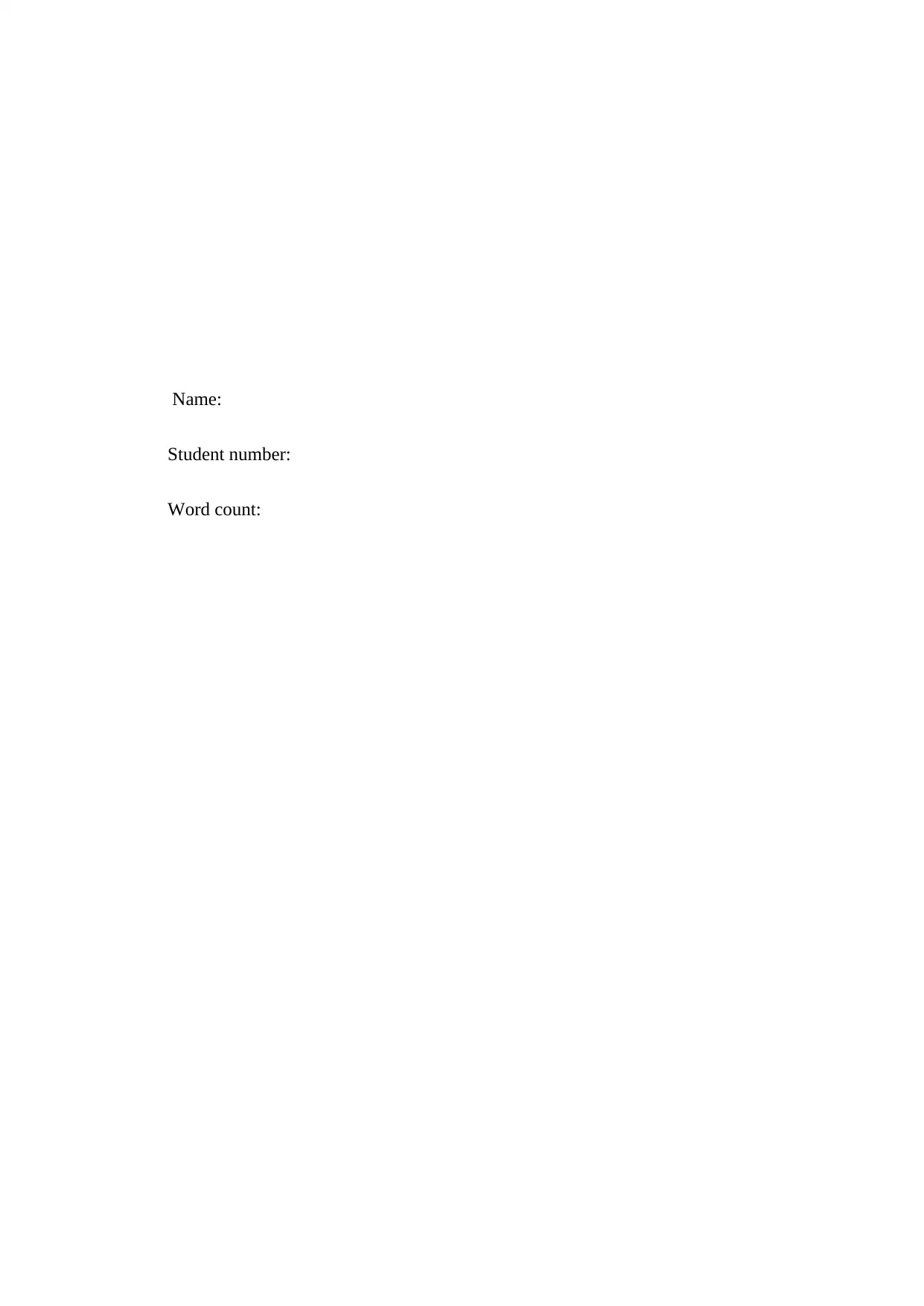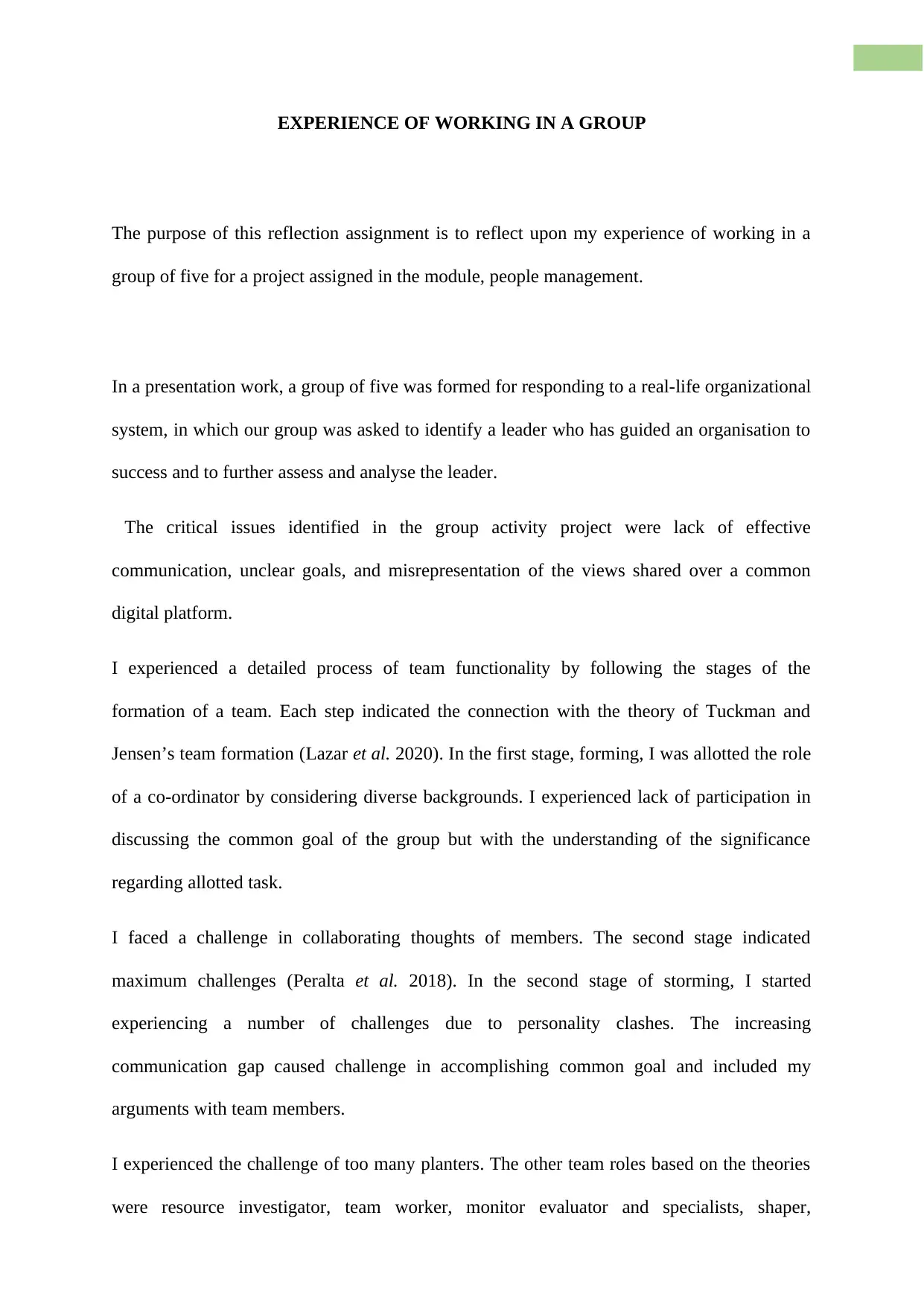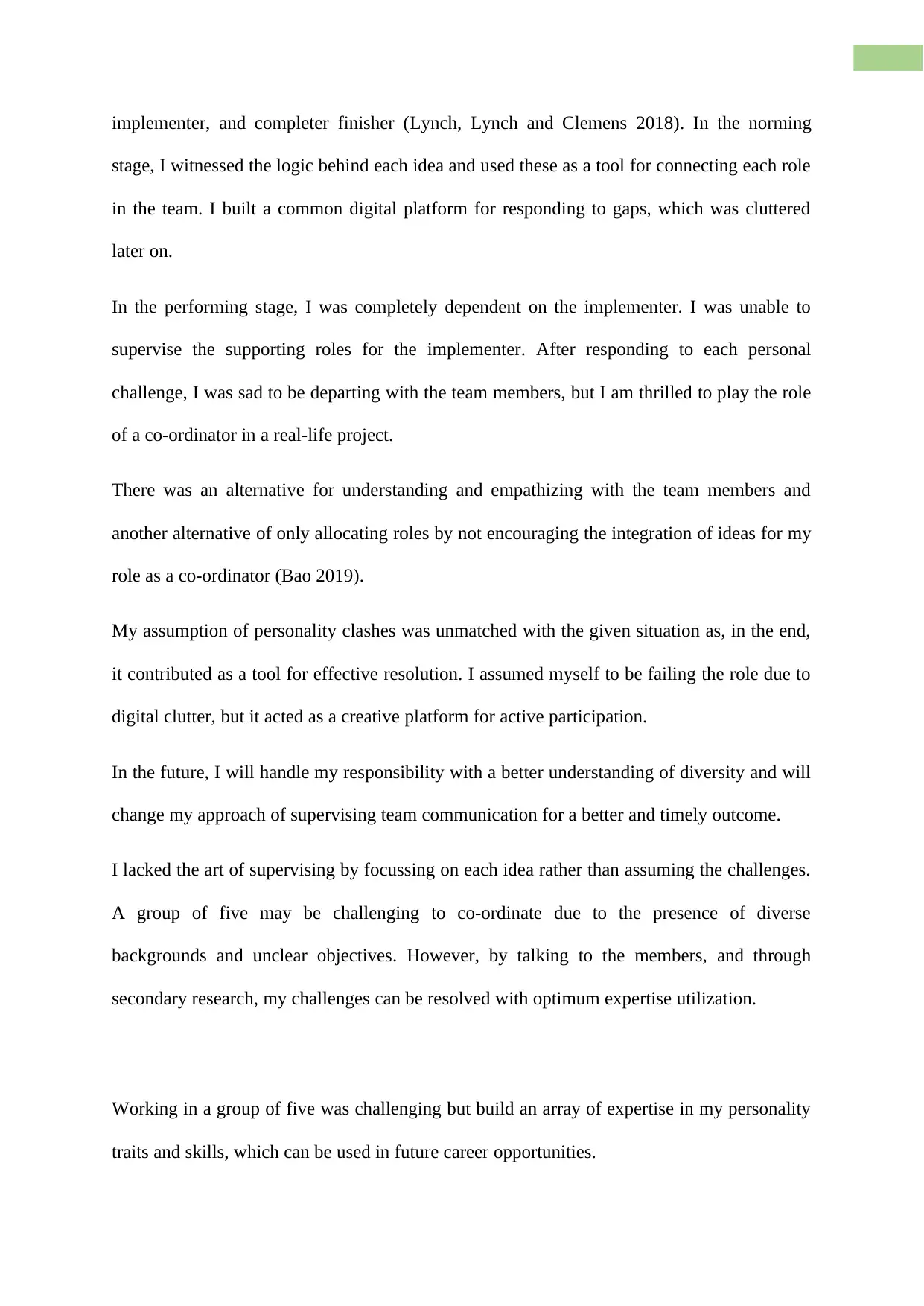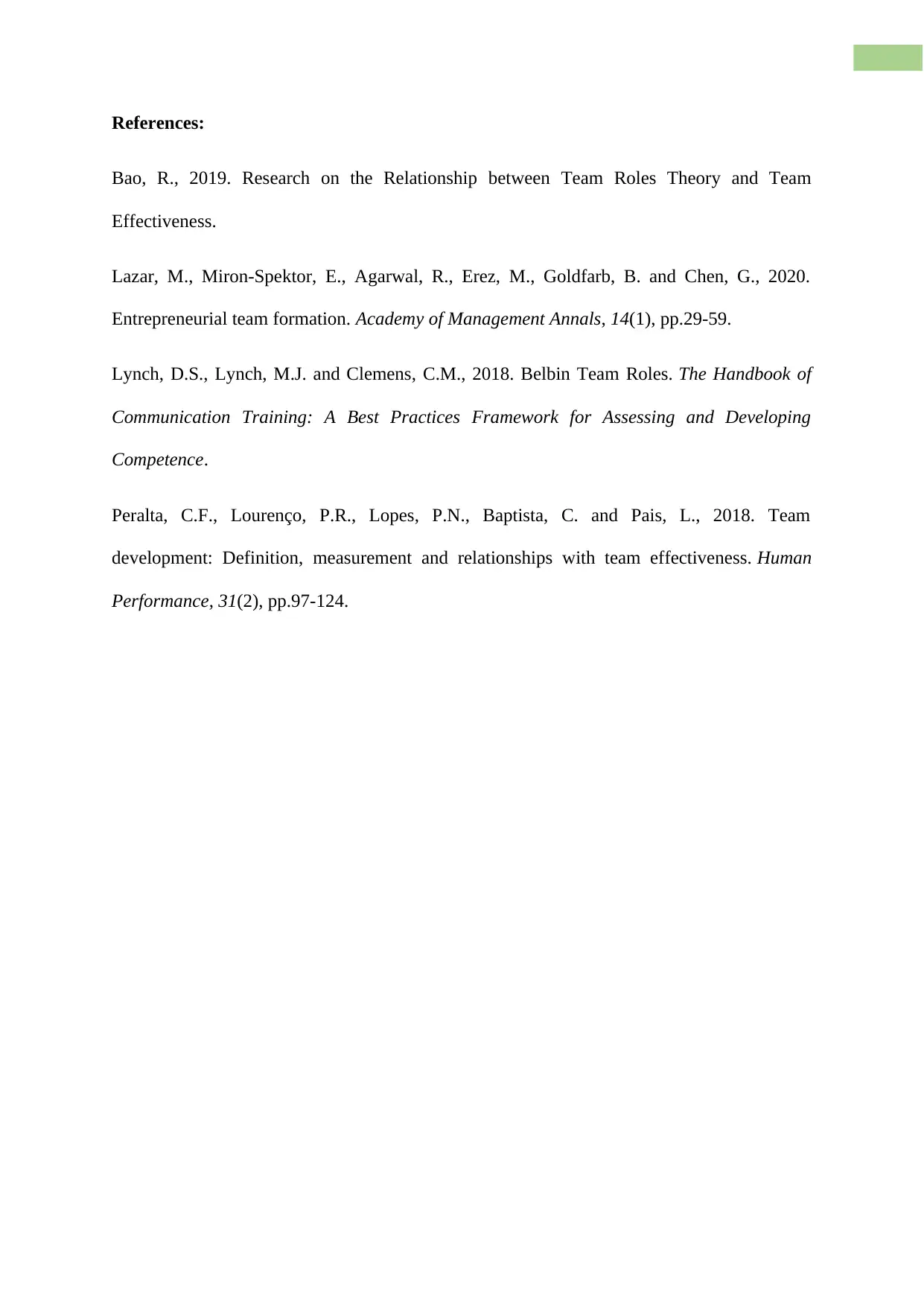People Management Module: Reflecting on a Group Work Experience
VerifiedAdded on 2022/08/22
|4
|762
|21
Journal and Reflective Writing
AI Summary
This reflective assignment details a student's experience working in a group of five for a people management project. The student, acting as a coordinator, reflects on the challenges encountered, including ineffective communication, unclear goals, and personality clashes, while navigating the stages of team formation based on Tuckman and Jensen's model. The reflection highlights the student's initial struggles with team dynamics, the evolution of their role, and the eventual understanding of the value of diverse perspectives and effective communication. The assignment analyzes the practical application of team roles, digital platform management, and the importance of adapting leadership approaches. The student concludes with insights gained, emphasizing the significance of understanding diversity, improving communication supervision, and the overall development of leadership skills through the group work experience.
1 out of 4










![[object Object]](/_next/static/media/star-bottom.7253800d.svg)